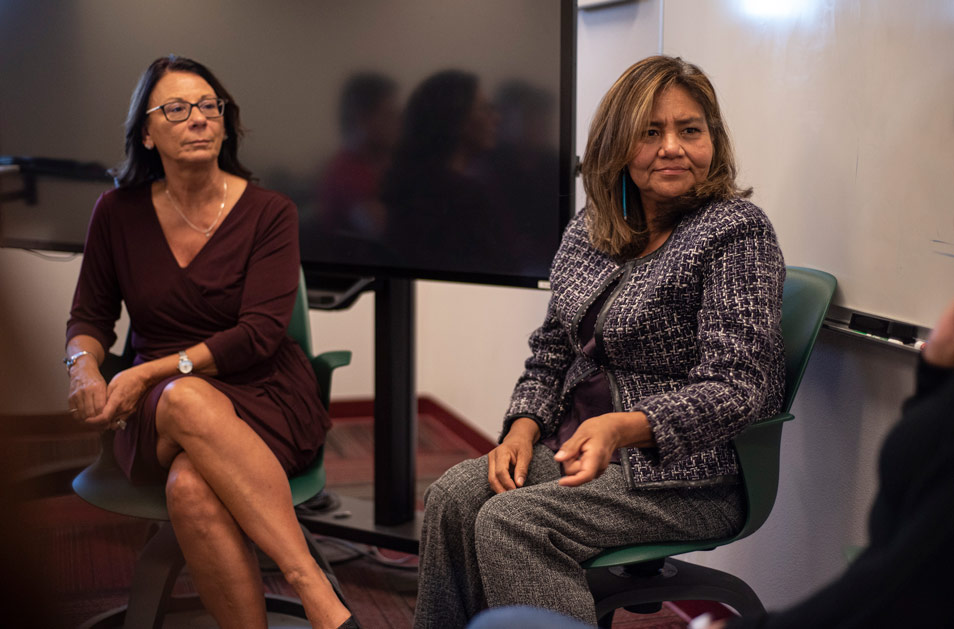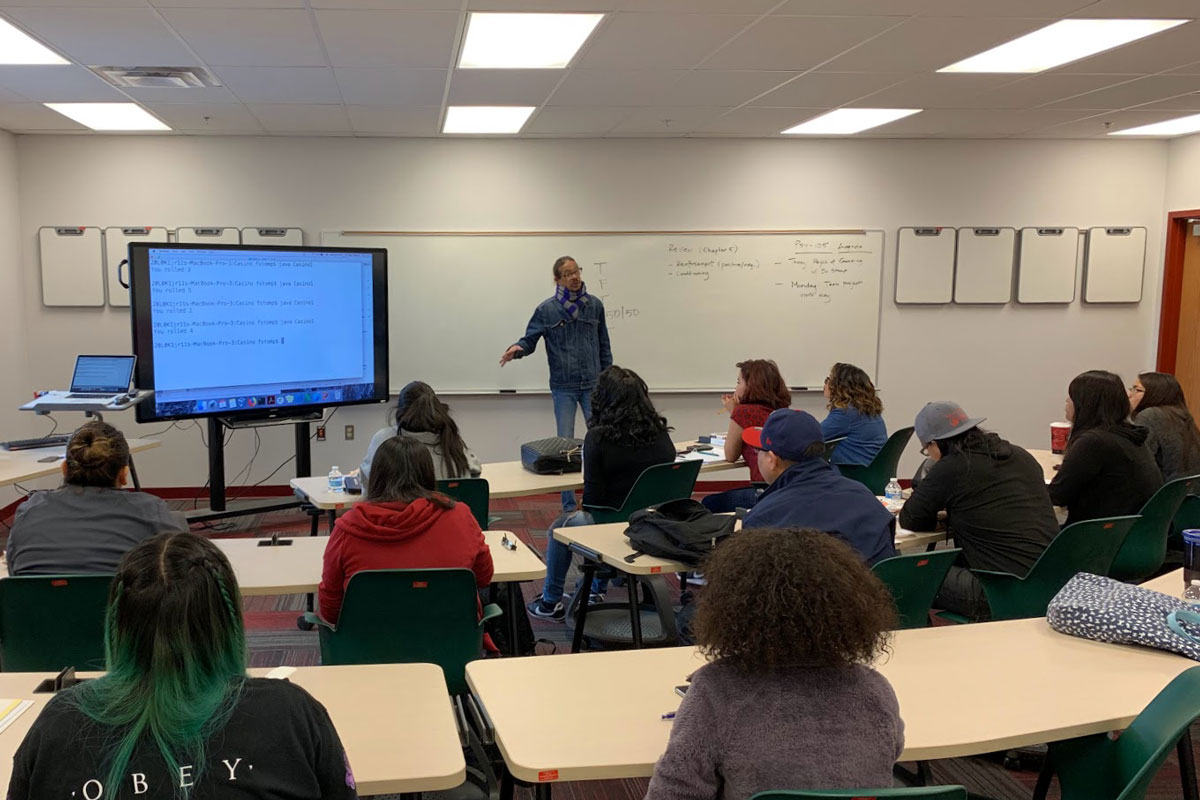Associate of Arts
An A.A. degree provides a foundation in general education including courses in mathematics, humanities and social sciences, communication, and natural sciences. Students may transfer their degree credits to a four-year institution to pursue a bachelor's degree in the arts or sciences.
Federal regulations require institutions participating in student financial assistance programs authorized under Title IV of the Higher Education Act of 1965 to report certain information about students who enrolled in Title IV eligible education programs.
The purpose of the Associate of Arts degree in Counseling with a concentration in Crisis Management & Suicide Prevention. The program is designed to prepare students for entry level jobs as Behavioral Health Technicians with the Navajo Nation Department of Behavioral Health Services, and student may continue to obtain a baccalaureate degree in Counseling or Psychology. This program came about because of a request made by Rehoboth McKinley Christian Hospital and the Navajo Nation Department of Behavioral Services to NTU. Problems such as death by exposure due to alcoholism, teenage suicide clusters, and substance abuse seemed to be growing in the Navajo Nation and border communities. The feeling was that more Navajo counselors trained at NTU might be one partial solution to these problems. A minimum of sixty-six academic credits must be earned in specified coursework.
| Estimated Cost of Attendance | $16,022/academic year |
|---|---|
| Tuition and Fees | $2,402 |
| Room and Board | $6,920 |
| Books and Supplies | $2,600 |
| Transportation | $1,600 |
| Personal/Misc | $2,500 |
Program Advisors
Dr. Dianna Dekelaita-Mullet, Assistant Professor of Psychology
Email: dmullet@navajotech.edu
Ph.D., Educational Psychology, University of North Texas
B.A., Mathematics, University of North Texas
Nancy Goodwin, Assistant Professor of Psychology
Email: nancy.goodwin@navajotech.edu
B.S., Organizational Management, John Brown University
A.A., Secretarial Science, Oklahoma State Tech
The purpose of the Associate of Arts degree in Counseling with a concentration in Substance Use Disorder. The program is designed to prepare students for entry level jobs as Behavioral Health Technicians with the Navajo Nation Department of Behavioral Health Services, and student may continue to obtain a baccalaureate degree in Counseling or Psychology. This program came about because of a request made by Rehoboth McKinley Christian Hospital and the Navajo Nation Department of Behavioral Services to NTU. Problems such as death by exposure due to alcoholism, teenage suicide clusters, and substance abuse seemed to be growing in the Navajo Nation and border communities. The feeling was that more Navajo counselors trained at NTU might be one partial solution to these problems. A minimum of sixty-six academic credits must be earned in specified coursework.
The Associate of Arts degree in Criminal Justice will provide a pathway for Navajo Police Officers who hold an NTU Technical Certificate in Law Enforcement, and better prepare those officers to compete for front-line supervisory positions. It will also provide an opportunity for non-Navajo Police Department officers to obtain an education in law enforcement, preparing them for a variety of law enforcement and regulatory compliance positions on the Navajo Nation, as well as the county, state, tribal, and federal levels.
| Estimated Cost of Attendance | $16,022/academic year |
|---|---|
| Tuition and Fees | $2,402 |
| Room and Board | $6,920 |
| Books and Supplies | $2,600 |
| Transportation | $1,600 |
| Personal/Misc | $2,500 |
Degree Checklist (Track A) Degree Checklist (Track B)
Program Advisor
Jennifer Henry
Police Academy Coordinator and Assistant Professor of Law Enforcement
Email: j.henry@navajotech.edu
Phone: 928-882-3150
The purpose of the Associate of Arts degree in General Studies is to provide a flexible degree program that allows students to complete their degree by attending classes that focus primarily on general education courses, yet provides insight into a variety of potential academic pathways for those who are undecided about a major. The General Studies program offers practical introductions to the field of general education classes at the college level. Additionally, students may transfer many, if not all, credits to a four-year college or University if they choose to pursue a Bachelor's degree.




